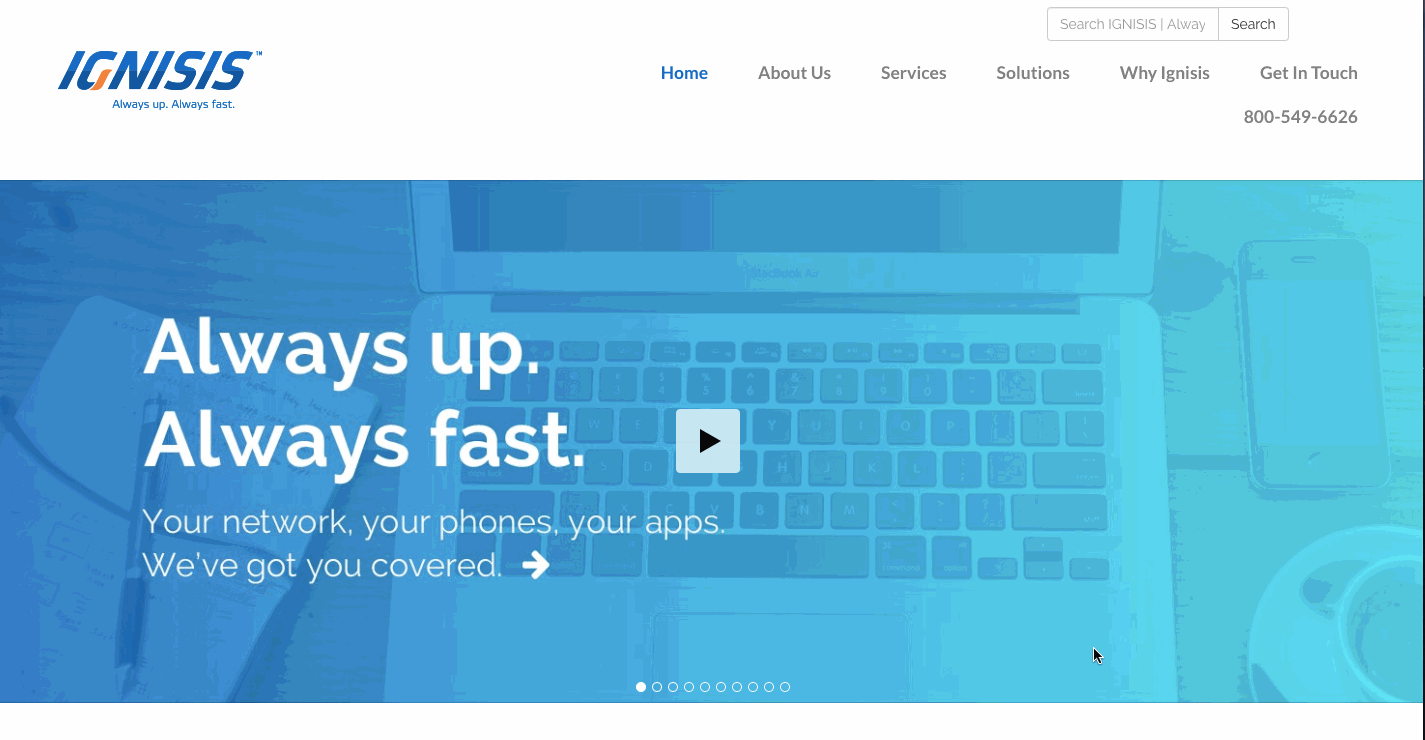
You are searching online for a website builder who can help you establish your online presence. You should be aware of several things before you begin to build your site. These are some suggestions for building a professional web site.
Picking a website developer
It's possible that you aren't sure which website builder is best for you if you're just starting out with building websites. A website builder can be a great alternative to learning coding. Website builders are easy to use and offer many advanced options, such as large font libraries and editing tools. This allows you to make significant changes to your website without needing to know any coding. You may also find it easier to make modifications to your website if there is a preview tool in the website builder.
There are 74 website builders on the market, so choosing the right one can be difficult. You can also choose the right one based on price, reliability, SEO, and web hosting services. You can also consider the template design and ease of use to choose the best website builder for your specific needs. Many website builders provide free trials and offer a wide range of features you can use.

A website specification is created
Website development is only as successful as the specification. It must be completed before the site can go live. Many developers rush to work without fully planning the project. A website specification document is critical for the success. Here are some tips for creating a website description document. Once you have a basic outline of the site, it is time to start drafting the structure and functionality.
A specification document should provide information about the project, your audience, and other pertinent details. It should state clearly the goals and objectives of your website. Include any relevant data, statistics, or a detailed customer persona to provide your web developer with information about your target audience. This will help to communicate the scope and ease the work for all involved. You can make sure that you have a good working relationship with your website specifications document.
Create a sitemap
A sitemap is an essential step in website development. Websites are rarely designed by one individual. They usually require several people to create them. A sitemap is a way to ensure everyone is on the same page. It helps everyone know where to find what information and which pages are most important. When you create a sitemap, you eliminate the possibility of making redundant pages or confusing users.
Sitemaps may also help to spot errors in code. Sitemaps can be added to the root folder of a website. Numerous popular sites use them. Apple's website contains one. It logically organizes each section. A sitemap allows visitors to navigate your website, and Google crawls it. A sitemap also allows search engines to index your site quicker and more efficiently. It is important that you add the URL to sitemaps in a way search engines can index easily.

A sitemap is a map of your website.
It is possible that you have heard of sitemaps for professional websites. However, it may be difficult to create one. Sitemaps are useful because they can highlight errors in your website's code. Sitemaps can be created by adding the sitemap codes to the root directory. This will allow you to add pages to your website. Websites use sitemaps, including Apple. Apple's site contains a logical hierarchy with sections. This sitemap shows the site’s content.
You will need to add the sitemap to your site and submit it for search engines. To do this, go to Google Search Console by clicking on the Crawl Tab. You can also select Sitemaps and submit it. After sitemap approval has been granted, you can inspect the sitemap to make sure it is error-free. If the sitemap works properly, you can submit it.
FAQ
Can I use HTML & CCS to build my website?
Yes! If you've been following along so far, you should now understand how to start creating a website.
You're now familiar with the basics of creating a website structure. However, you must also learn HTML and CSS Coding.
HTML stands for HyperText Markup Language. It's like creating a recipe for a dish. You would list ingredients, directions, etc. HTML can also be used to inform a computer if certain parts of text should appear bold, underlined and italicized. It's the language of documents.
CSS stands to represent Cascading Stylesheets. Think of it like a style sheet for recipes. Instead of listing all ingredients and instructions, you simply write down the basic rules for things such as font sizes, colors or spacing.
HTML tells a browser how to format a webpage; CSS tells a browser how to do it.
Don't be afraid to ask questions if you don’t understand any of these terms. Follow these tutorials, and you'll soon have beautiful websites.
How much do web developers make?
You can expect to make between $60-$80 an hour working on your own website. Independent contractors are a better option if your goal is to charge more. It is possible to charge between $150-200 an hour.
How much does it cost to build a website?
The answer to this question depends on what you want to accomplish with your website. For instance, if you just want to post information about yourself or your business, you might be able to get away with free services such as Google Sites.
If you want to attract more visitors to your website, however, you will need to pay for something stronger.
The most popular solution is to use a Content Management System (like WordPress). These programs allow you to create a website without knowing anything about programming. And because third-party companies host these sites, you won't need to worry about getting hacked.
Squarespace is another service that can be used to build websites. Squarespace offers a variety plans that range from $5 per person to $100 per person, depending on what information you want to include.
How do I choose a Domain Name?
A good domain name is vital. People won't know where to go if they don't have a good domain name.
Your domain name should be concise, memorable, unique, relevant, and easy to remember. It is ideal to have something that people can type into their browser.
Here are some ways to choose a domain name.
* Use keywords related to your niche.
* Avoid hyphens (-), numbers, and symbols.
* Don't use.net or.org domains.
* Use words that are already used.
* Avoid using generic terms like "domain"/website.
* Check that it is available.
Are I more likely to be hired for a job as a Web Developer if my portfolio is good?
Yes. You must have a portfolio to be considered for a job in web development or design. Your portfolio should show examples of your skills, experience, and knowledge.
Portfolios usually include samples of past projects. These examples can showcase your abilities. Your portfolio should include everything: wireframes and mockups as well as logos, brochures, websites, apps, and even logos.
Which platform is best to create a website?
The best platform for designing a website is WordPress. It has all the features required to create a professional-looking website.
Themes are easy to install and customize. There are many themes to choose from online.
Plugins are another way to add functionality. They can do everything, from adding social buttons to creating contact pages to adding forms.
WordPress is very user-friendly as well. You don't even need to know HTML code in order to modify your theme files. All you need to do is click on an icon and select what you want to change.
Although there are many platforms out there, I prefer WordPress. It's been around since the beginning and is still being used by millions of people worldwide.
Statistics
- It enables you to sell your music directly on your website and keep 100% of the profits. (wix.com)
- Did you know videos can boost organic search traffic to your website by 157%? (wix.com)
- Studies show that 77% of satisfied customers will recommend your business or service to a friend after having a positive experience. (wix.com)
- In fact, according to Color Matters, a signature color can boost brand recognition by 80%. There's a lot of psychology behind people's perception of color, so it's important to understand how it's used with your industry. (websitebuilderexpert.com)
- The average website user will read about 20% of the text on any given page, so it's crucial to entice them with an appropriate vibe. (websitebuilderexpert.com)
External Links
How To
What is website Hosting?
Website hosting refers to where people go when they visit a website. There are two types.
-
Shared Hosting - This is your cheapest option. Your website files will reside on a server belonging to someone else. Your customers' requests travel via the Internet to your server when they visit your site. You then receive the request from the owner of the server.
-
Dedicated hosting – This is the most expensive option. Your website will reside on a single server. You and your traffic are protected by the fact that no other websites share server space.
Shared hosting is cheaper than dedicated hosting for most businesses. With shared hosting, the company that owns the server provides the resources needed to run your website.
However, both have their advantages and disadvantages. Here are the differences:
Shared Hosting Pros:
-
Lower Cost
-
Simple to Setup
-
Frequent Updates
-
It is available on many Web Hosting Companies
Hosting shared can be as low as $10 per month. Remember that shared hosting usually comes with bandwidth. Bandwidth is how much data you can transfer to the Internet. Even if only you upload photos to your blog or website, high-volume data transfers may incur additional charges.
Once you begin, you will soon see why you spent so much on your previous host. The majority of shared hosts offer limited customer support. While they may occasionally assist you in setting up your site and other tasks, after that you are all on your own.
It is important to find a provider that provides 24-hour support. They will assist you with any problems that may arise while you're sleeping.
Cons of dedicated hosting
-
More Expensive
-
Less Common
-
Requires specific skills
With dedicated hosting, you get everything you need to run your website. You don't need to worry about bandwidth usage or RAM (random access memory).
This means that you will have to pay a little more upfront. But once your online business starts, you'll realize you don't need any technical assistance. You'll be able to manage your servers effectively.
Which Is Better For My Business, So Which Is Better?
The answer will depend on the type and purpose of your website. Shared hosting might be best if you just want to sell products. It is easy to set-up and manage. And since you're sharing a server with many other sites, you'll likely receive frequent updates.
However, dedicated hosting can be a great option if you're looking to build a community around the brand. You can focus on building your brand without worrying about handling your traffic.
Bluehost.com is a web host that offers both. Bluehost.com offers unlimited monthly data transfers, 24/7 customer support, domain registrations free of charge, and a 30-day guarantee for your money back.